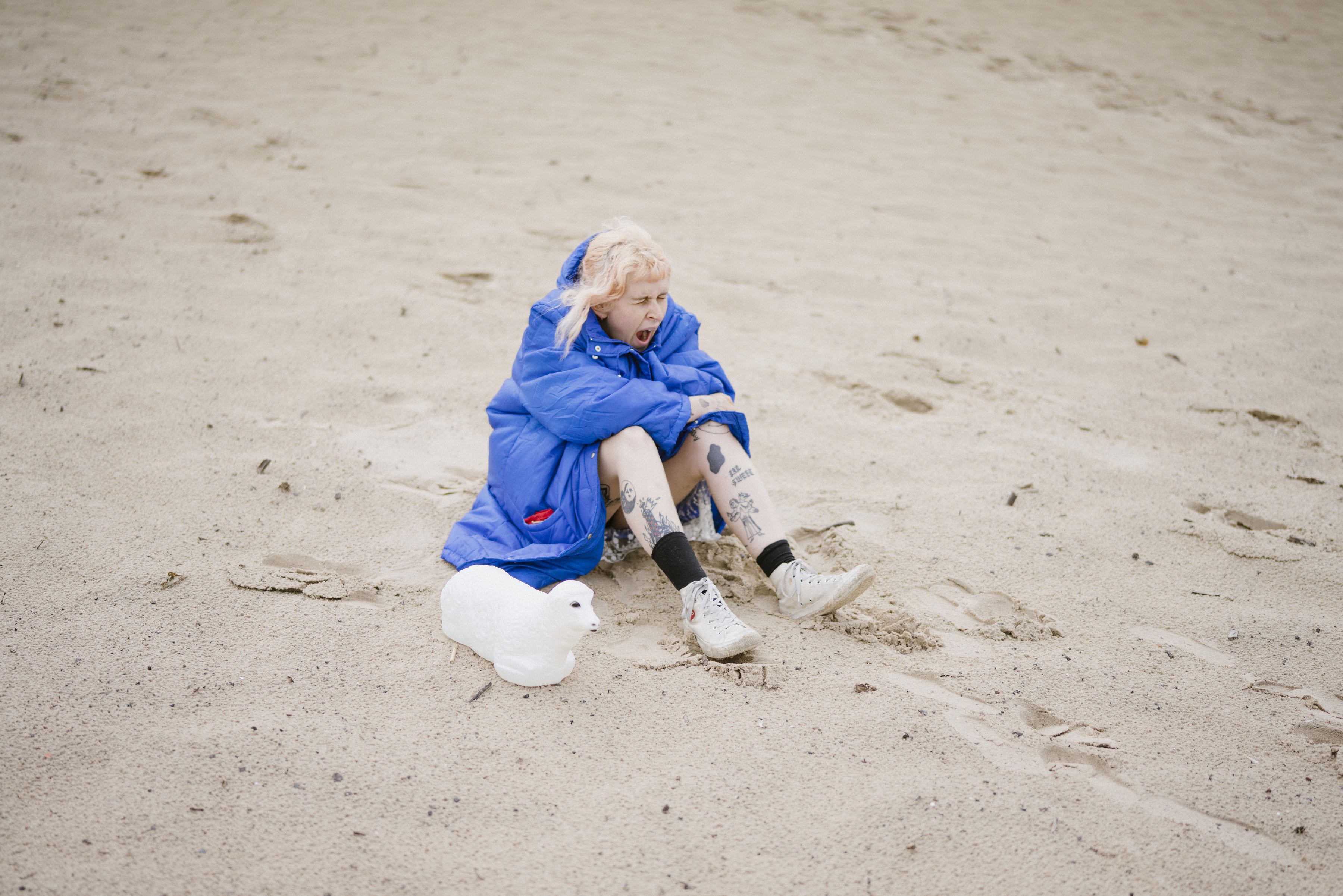BACKSTORY: A die-hard showgoer turned DIY VIP
FROM: London; now living in Chicago via Los Angeles
YOU MIGHT KNOW HER FROM: Touring with Wolf Parade, LVL UP, WHY?,
and Mothers
NOW: Rolling out her sophomore album, The Lamb, via Hardly Art
Since 2014, Lillie West has been uploading music to her Bandcamp page under the moniker Lala Lala, a playful name that reflects the raucous, Elephant 6–indebted recordings that culminated in her 2016 debut, Sleepyhead. Originally from London, West fell in love with the DIY music scene as a transplant in Los Angeles, and began writing her own songs after moving to Chicago to attend the Art Institute. “I went to shows a lot when I was a teenager,” she explains. “A lot a lot. I loved it.” Now at the center of one of the country’s most prolific DIY communities, her sentiment doesn’t seem to have changed.
“I think that there are freakier people in Chicago,” she says, comparing her current city’s scene to that of LA. “Freaky good, or just freaky strange—I do feel like people take more risks in Chicago.” Among her heroes are Melkbelly’s Miranda Winters, who played bass on a few of Lala Lala’s recent Midwest tour dates, and Nnamdi Ogbonnaya, with whom West just recorded a cover of Sixpence None the Richer’s “Kiss Me.” “I feel like in Chicago people are just making art for art’s sake—for their friends, to enjoy themselves.”
On The Lamb, Lala Lala’s debut for Hardly Art, West swaps a haphazard energy for a more focused, meditative, and confident disposition, echoing the glowing guitars of NE-HI and slow-tempo programmed beats of Owen Ashworth. “On Sleepyhead I wasn’t paying attention, and I was like, ‘Whatever happens is fine.’ And I would say with The Lamb, a lot of it is the complete opposite. I tried a lot harder.”
“I really felt like I spent so much time underwater, just being a non-conscious, wasteful person, and now every moment I am so deeply grateful.”
West attributes her new songwriting philosophy to a new outlook on life, notably defined by a recent decision to get sober. Lyrically, The Lamb wrestles with this adjustment, particularly the paranoia of sudden stability: “I’ve heard from other sober people that once you get sober you really worry that your life’s gonna get taken away from you suddenly, and you’re like, ‘But I’m not done yet, I’ve wasted so much time that I’m not done being grateful.’ I really felt like I spent so much time underwater, not thinking about anything, throwing things away, throwing people away, just being a non-conscious, wasteful person, and now every moment I am so deeply grateful.”
“I’ve had too much fun, when will it be taken?” West ponders early in the album, on “Water Over Sex,” before later sighing, “It was too good all along,” on “Scary Movie.” The record’s emotional climax arrives on the penultimate track, “When You Die,” which West wrote predominantly based on a conversation she had with friend and labelmate Jilian Medford immediately after her band IAN SWEET was involved in a car crash (they’re OK; their recent Crush Crusher is more than OK). “It’s about death and keeping my friends safe. I just want everyone to be safe inside their house all the time,” she says, confessing to a lingering irrational fear of loved ones getting hurt or dying. “Oh god, yeah, this song is sad,” she concludes upon revisiting the lyrics.
Despite the density of the album’s lyrical content, The Lamb is still a curiously fun record, from the earworm melancholy of opener “Destroyer” to “See You at Home”’s saxophonic send-off. Above all, it feels hopeful: “When I stopped drinking and doing drugs, I had to really change everything about my life, particularly how I communicate, or how I interpret the world,” she says. “[Naming this album] The Lamb, I was thinking about me as a baby sheep learning how to walk, learning how to live, ’cause I really didn’t know before.” Regardless of whether Chicago remains her permanent home, West is headed toward greener pastures. FL
This article appears in FLOOD 9. You can subscribe to the magazine here.







